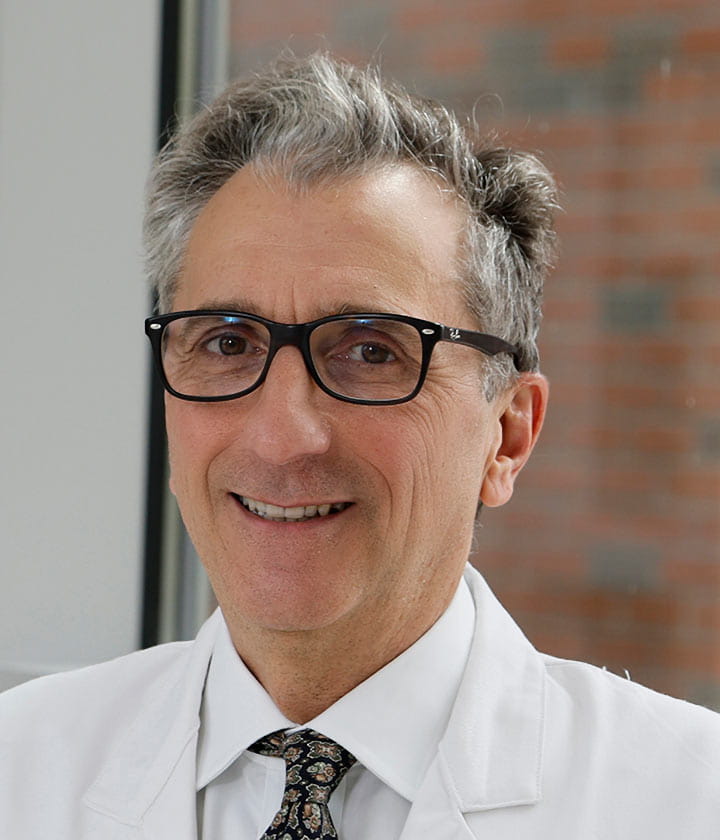Following bariatric surgery, many patients become frustrated by the excess skin that results from dramatic weight loss. This extra skin can be quite uncomfortable, and can cause issues with movement, hygiene, daily activities and self-esteem.
You’ve worked hard to lose all this weight — your excess skin is proof! Yet we understand that most people hate this excess skin and don’t want to carry it around a moment longer than necessary. The good news is that excess skin following weight loss can be safely removed with something called body contouring.
Many patients carry excess skin around their face, neck, arms, breasts, back, abdomen, buttock and thighs. The plastic surgery experts at Ohio State can target all of these areas, but the procedures can be extensive, so we’ll start with the areas of greatest concern and map a treatment plan to help you reach your eventual goal.
Who is a good candidate for body contouring after bariatric surgery?
As much as you might like to remove excess skin as quickly as possible, we want you to have the best results, so it’s important to delay body contouring until you’ve been at a stable weight for at least six months. In addition, candidates must not smoke or use nicotine products, and must be considered healthy enough for the surgery based on medical screening. See if you meet all the qualifications for body contouring surgery.
What to expect
Everyone is unique, so your care will be tailored to your personal goals and to protect your health and safety.
Getting started
During your first appointment with our plastic surgery team, we’ll review your medical history, complete a physical exam, talk about the areas that bother you most and discuss improvements you may not have considered or thought possible to fix.
Once we know you’re ready for body contouring surgery, our scheduling coordinator will talk with you about fees and timing.
- If deemed medically necessary, some body contouring procedures are covered by insurance.
- We can also explain cosmetic surgery fees if you want to pay for procedures out-of-pocket.
- Once you understand potential costs and want to move forward, we’ll set a series of appointments.
Preparing for surgery
A preoperative appointment is scheduled within 30 days of surgery. During this visit we’ll:
- Update your medical history, complete a new physical exam and collect samples for lab work.
- Explain the procedure you’ll be having and answer any questions you might have.
- Collect your signed consent for surgery.
- Review day-of-surgery instructions and provide a folder with those instructions to take home.
Your procedure will be performed in the hospital or at an outpatient surgery center, so you won’t have to stay overnight in the hospital. However, you’ll need to have someone over age 18 to drive you to and from the surgery and stay with you for at least the first night following surgery.
The day of surgery
Our nurses, anesthesia experts and plastic surgery staff will prepare you for surgery. You’ll receive pain medication and antibiotics before the procedure to minimize pain and reduce the risk of infection.
During surgery, we typically place drains at the incision sites to help with healing. You’ll recover in the postanesthesia care unit, and most patients are sent home the same day after we’ve reviewed postoperative care instructions with you and your caregiver and sent a prescription for additional pain medication to your preferred pharmacy.
After surgery
You’ll have follow-up appointments weekly or biweekly the month of your surgery, then we’ll see you one, three, and six to 12 months postsurgery.
During these visits, we’ll check your progress, answer any questions, review postoperative care instructions and begin planning for any additional body contouring surgeries.
Your care team
The Ohio State Wexner Medical Center offers innovation, compassionate care in Plastic and Reconstructive Surgery, with specialized services for patients who have had bariatric surgery.
Ready to keep moving forward with even more positive changes?
Learn more about the body contouring procedures available at Ohio State.

